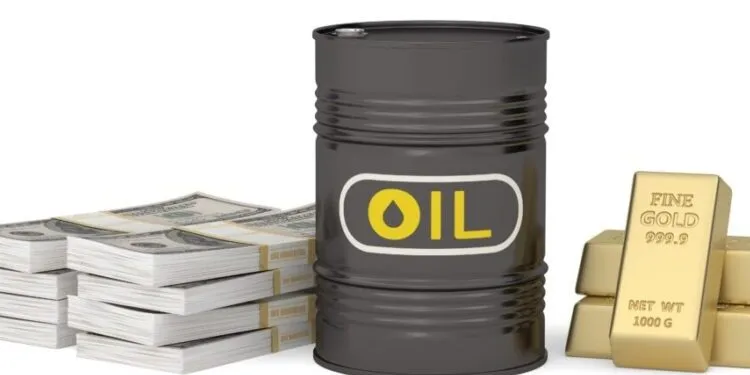
The Bank of Ghana (BoG) has officially discontinued its Gold-for-Oil initiative after a comprehensive assessment revealed substantial financial losses that outweighed the program’s intended benefits.
According to Governor Dr. Ernest Addison, the decision was made after it became clear that the initiative, introduced to stabilize fuel prices and reduce pressure on the country’s foreign exchange reserves, was no longer economically viable. Speaking during a Monetary Policy Committee press conference in Accra, he confirmed that the central bank would cease the direct exchange of locally sourced gold for imported petroleum products.
“The financial review clearly showed that the costs incurred through the programme were significantly higher than the gains,” Dr. Addison noted. Although the exact figures were not disclosed, he emphasized that the losses were considerable enough to justify terminating the programme.
Introduced in late 2022, the policy was designed to use gold rather than U.S. dollars for importing fuel, with the expectation that this would ease inflation and reduce demand for foreign currency. While it initially helped to slightly ease fuel prices, subsequent challenges eroded its effectiveness.
Key issues identified included unpredictable fluctuations in global gold prices, expenses related to refining and logistics, shipment delays, and mismatches between the value of gold traded and the oil received. These factors combined to render the programme unsustainable in the long term.
Critics of the initiative had previously raised concerns about transparency and questioned the central bank’s direct role in managing commodity-based trades. Additionally, there were apprehensions about how the policy impacted local gold producers and the broader mining sector.
With the termination of the Gold-for-Oil strategy, the central bank is returning to more traditional monetary tools and foreign exchange management practices. The BoG reaffirmed its commitment to maintaining macroeconomic stability using conventional policies as the country continues its broader recovery efforts.
The shift highlights the complexities and risks involved in pursuing alternative mechanisms to tackle currency pressures and inflation, particularly in economies heavily reliant on commodity exports.
FAQs: Termination of Ghana’s Gold-for-Oil Policy
1. What was the Gold-for-Oil policy?
The Gold-for-Oil policy was an initiative introduced in 2022 to use Ghana’s gold reserves to directly pay for imported petroleum products. The aim was to reduce pressure on the cedi by minimizing the use of U.S. dollars for fuel purchases.
2. Why did the Bank of Ghana end the policy?
The policy was terminated due to significant financial losses. A thorough economic assessment revealed that the cost of running the programme outweighed its intended benefits of fuel price stability and foreign exchange savings.
3. What were the main problems with the policy?
The programme faced multiple challenges, including:
-
Volatility in global gold prices
-
High refining and transportation costs
-
Delays in oil shipment
-
Mismatches in the value of gold exchanged for oil
4. Did the Gold-for-Oil policy help lower fuel prices?
The programme initially contributed to marginal fuel price reductions. However, its long-term financial sustainability proved to be problematic.
5. How much did Ghana lose through this policy?
The Bank of Ghana has not disclosed the exact financial losses. However, it described the losses as substantial enough to discontinue the programme immediately.
6. Was the programme transparent?
The policy attracted criticism over its lack of transparency, particularly regarding procurement processes and the valuation of gold traded for oil.
7. What happens now that the programme is ended?
The Bank of Ghana will return to traditional methods of managing fuel imports and foreign exchange reserves. The central bank will focus on stabilizing the cedi and managing inflation using orthodox monetary tools.
8. What impact will this have on Ghana’s economy?
While the programme’s end may reduce short-term innovation in forex management, it reinforces a focus on long-term economic stability through conventional financial practices.
9. Will there be another similar initiative?
As of now, the BoG has not announced any replacement for the Gold-for-Oil programme. The focus has shifted back to strengthening core monetary policies.
10. How can Ghana reduce dependency on foreign exchange for fuel imports?
Strategies may include:
-
Diversifying energy sources (e.g., local refining, renewable energy)
-
Strengthening domestic production capacity
-
Promoting energy efficiency and conservation
-
Encouraging foreign direct investment in the energy sector






